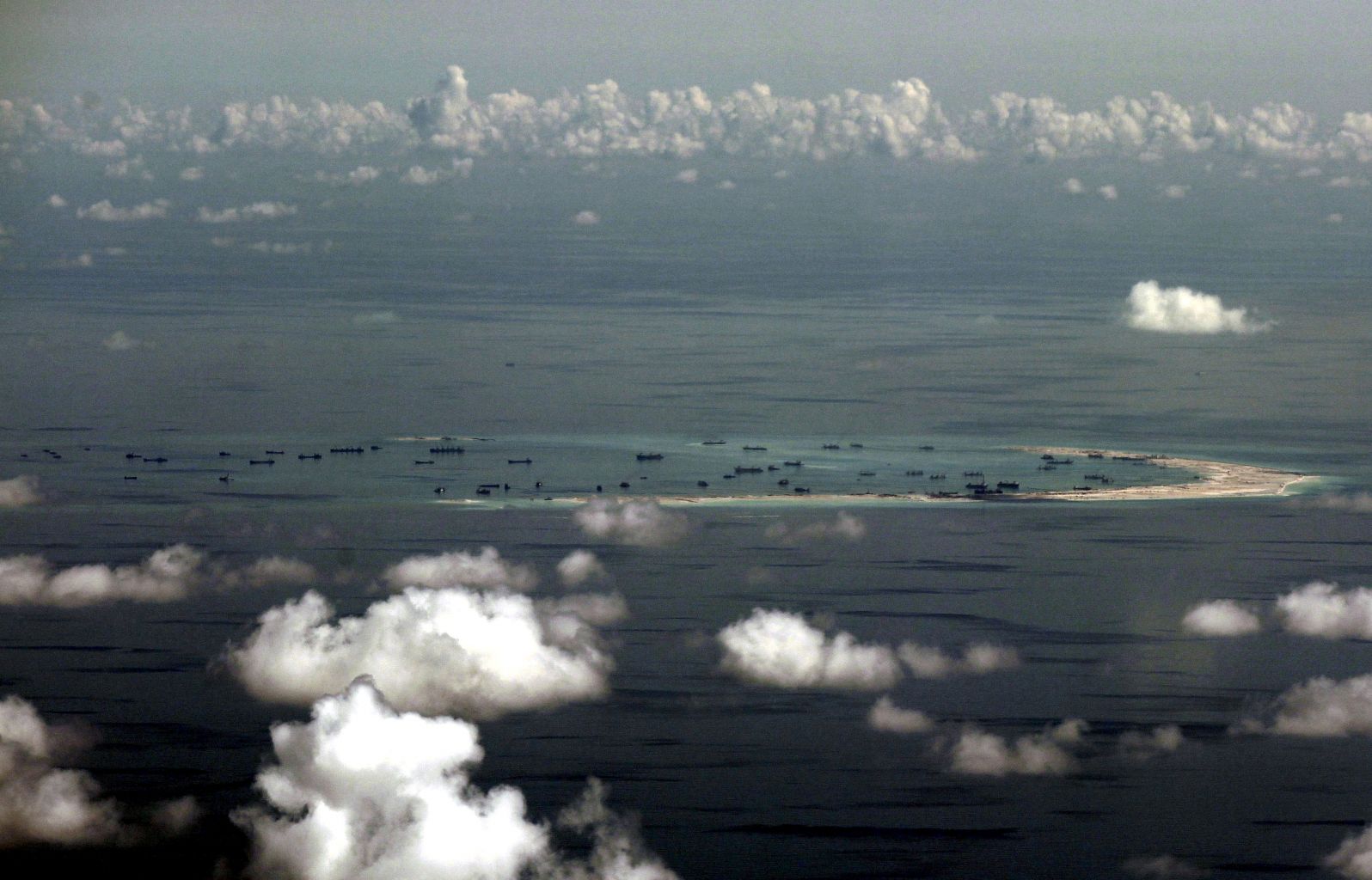Framework of South China Sea code skirts thorny issues with China
Sign up now: Get insights on Asia's fast-moving developments

An aerial photo taken though a glass window of a Philippine military plane shows the alleged on-going land reclamation by China on Mischief Reef in the Spratly Islands.
PHOTO: REUTERS
Follow topic:
MANILA - A two-page "framework" of a code of conduct (COC) meant to prevent conflicting territorial claims in the South China Sea from erupting into violent confrontations will neither guarantee a legally binding arrangement nor raise specific issues that have provoked Beijing.
The final document, seen by reporters, envisions a code that is "rules-based", with "a set of norms to guide the parties and promote maritime cooperation" in disputed waters.
Southeast Asia's foreign ministers are set to endorse the framework on Sunday (Aug 6).
The framework emphasises that the COC "is not an instrument to settle territorial disputes or maritime delimitation issues".
It instead promotes "mutual trust, cooperation and confidence, prevent incidents, manage incidents should they occur and create a favourable environment for the peaceful resolution of disputes".
It likewise seeks to "ensure maritime security and safety and freedom of navigation and overflight".
After the endorsement of the ministers of Asean and China on Sunday (Aug 6), the framework will then be elevated to the leaders, who will note the approval and instruct both sides to take steps toward actual negotiations for a COC.
The South China Sea is a vital sea lane where oil and natural gas have been discovered in several areas.
Finalising the code has acquired urgency due to series of confrontations between China and its smaller Southeast Asian neighbours with competing claims to the waters, like the Philippines and Vietnam. Other claimants are Malaysia, Brunei and Taiwan.
Efforts to finalise the pact have dragged on for years without any sign that such accord will ever be achieved.
In place of a legally-binding code, China and Asean, which groups the Philippines, Singapore, Vietnam, Thailand, Indonesia, Malaysia, Brunei, Cambodia, Myanmar and Laos, settled for a mere declaration in 2002 that calls on claimants to exercise restraint and stop new occupation in the South China Sea.
However, its non-binding nature and lack of provision to sanction misbehaving claimants, renders the accord useless against aggression.
The framework is mum on whether the COC must be legally binding.
Philippine Foreign Secretary Alan Peter Cayetano earlier hinted that he is open to an accord that is not legally binding if it will expedite the negotiations.
But South China Sea expert Carl Thayer, professor emeritus at the University of New South Wales-Australian Defence Force Academy, told Reuters a non-binding code of conduct would be "meaningless".
"A non-legally binding COC would be a political agreement much like the 2002 Declaration on the Conduct Parties or DOC in the South China Sea. A non-binding COC would be a disaster of the first order. China would keep pushing and Asean claimant states would be left with no option but to capitulate," he said.
University of the Philippines Institute for Maritime Affairs and Law of the Sea director Jay Batongbacal said the only thing a non-legally binding COC will do "is to create this atmosphere which we hope in the future will enable parties to continue talking and finding a negotiated solution in the future".

